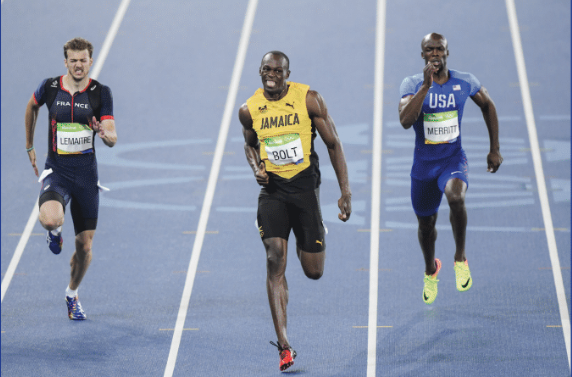Where does talent lie?
Some say it’s in the genes. Others credit the local yams and green bananas. Sports analysts reckon(...) world-class coaches played the key role. Cultural commentators credit a straightforward(...) love of speed which, in previous eras, inspired the nation’s most gifted sportsmen to devote their careers to sending cricket balls towards rib cages at high velocity(...) . The utter domination of sprinting by a small Caribbean island with a population of less than three million has left commentators reaching for superlatives. Of the 12 individual medals awarded in the London Olympics’ 100 and 200 metre events, eight went to Jamaicans. Three were gold. In 2008, they won all four of the men’s and women’s races. Why are the Jamaicans so good at running? One obvious answer is genetic. On the “nature” front, average Jamaicans are blessed with long limbs, low fat levels, and narrow hips. Previous Olympic champions such as Donovan Bailey, who won Gold for Canada in 1996, and Britain’s Linford Christie, showcased the natural potential of the build: they were born in Jamaica before emigrating as children. On the “nurture” front, Jamaica’s relatively healthy staple foods play a role. Most star athletes come from rural areas, where they grow up walking long distances and drinking water instead of soft drinks, and eating lots of vegetables. When Usain Bolt won gold in Beijing in 2008, his father, Wellesley, told reporters that his speed stemmed from(...) yams that grow in his native north-west of the island. Coaching has almost certainly also been pivotal(...) . In previous eras, Jamaica's best young athletes often emigrated to top US colleges. They usually never returned. Now, the world’s best coaches, including the great Dennis Johnson, and Bolt's mentor Glen Mills, are based at home in Jamaica, so they tend to stay. The final piece of the jigsaw is cultural. Sprinting is now Jamaica’s de facto national sport. Children start at the age of three and begin competing at six. They generally train on grass, which many believe is more effective than artificial surfaces for developing athletes. The national school track championships, known locally as “Champs,” are now more closely watched than the West Indies cricket test matches and national football fixtures. Of course, to the heroes of any fashionable sport come the spoils(...) . For ambitious(...) young Jamaicans, sprinting has duly(...) come to represent a path out of poverty. Bolt earned an estimated $20m last year, according to Forbes. He drives fast cars, dates beautiful women, and was this week described by Reuters as: “the island’s top celebrity after... Bob Marley.” In the land of reggae, you don't get any bigger than that. (Reading text adapted from the independent)

